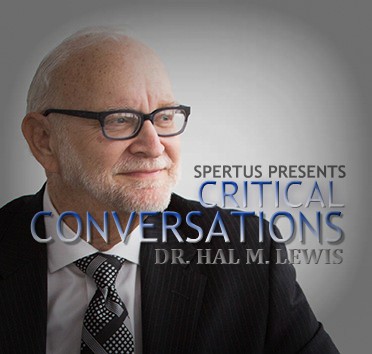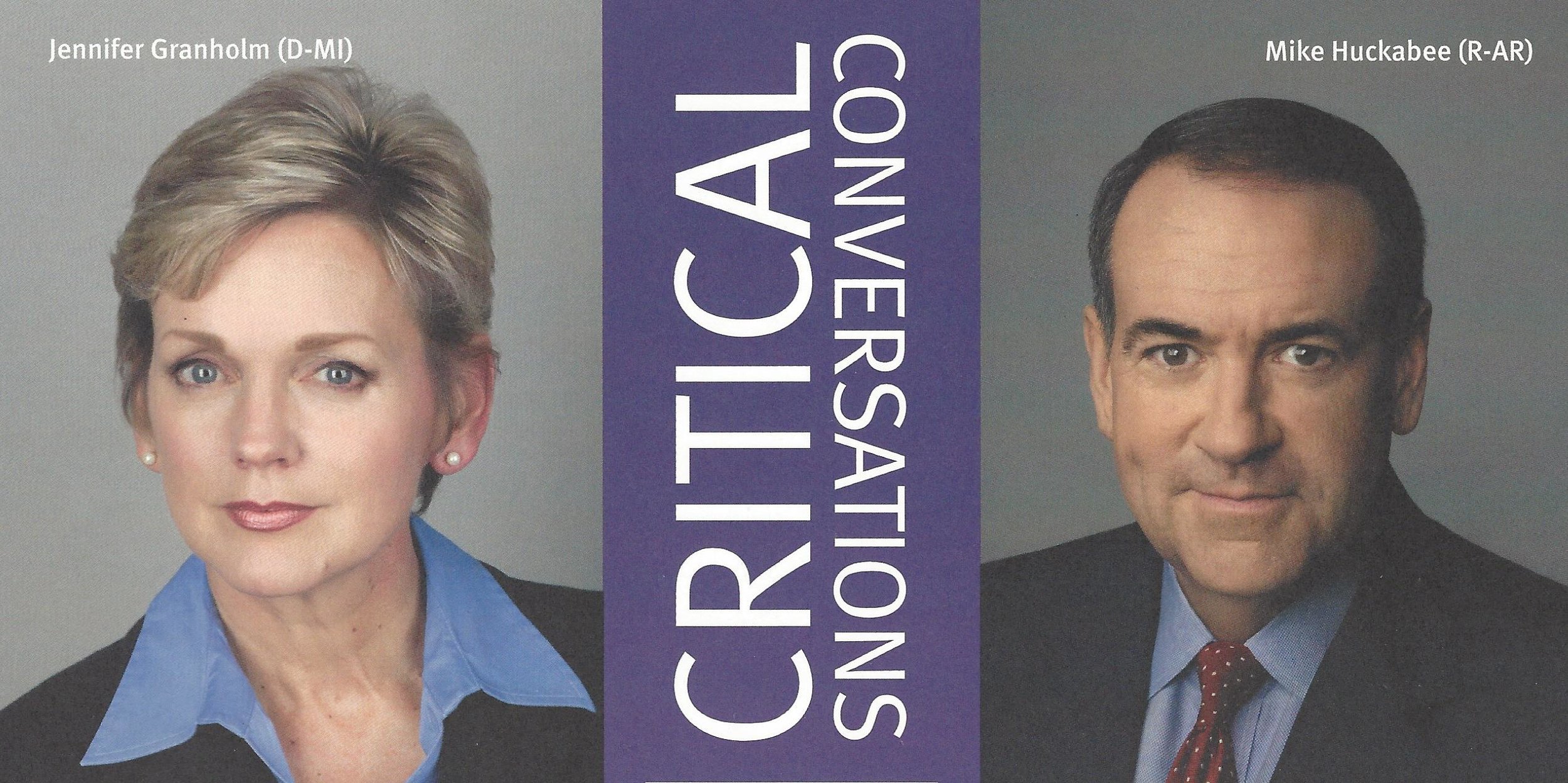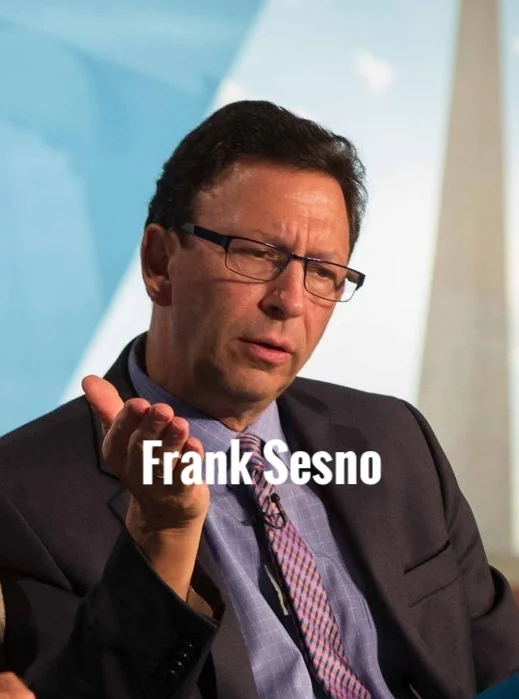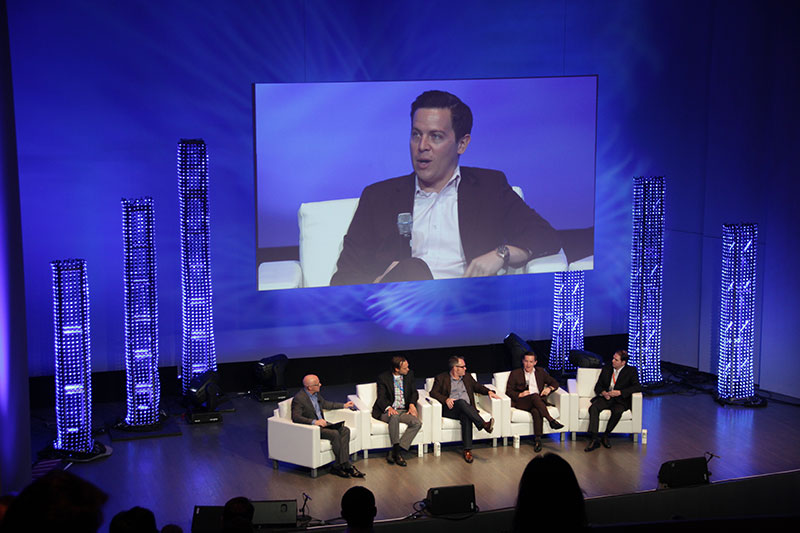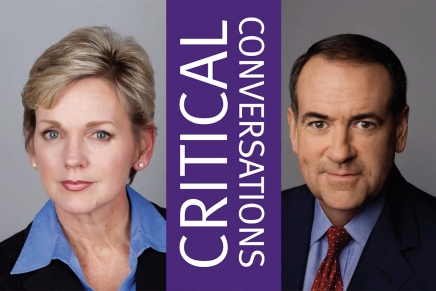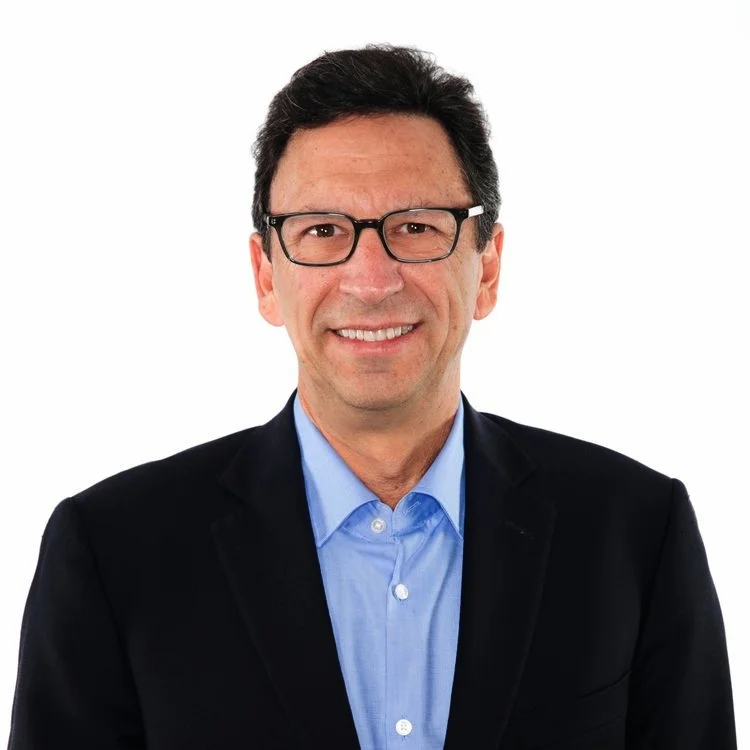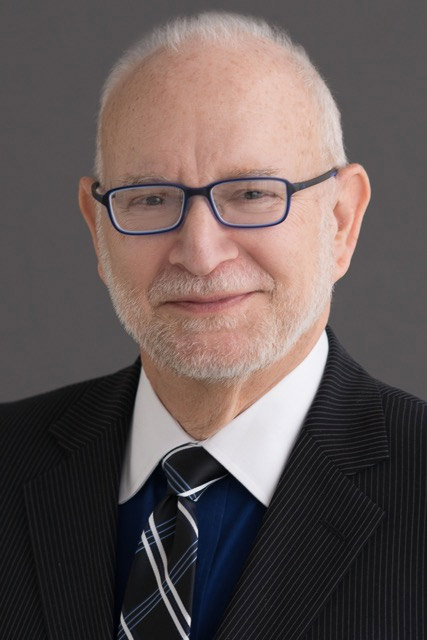DR. HAL M. LEWIS - CRITICAL CONVERSATIONS AT SPERTUS INSTITUTE
The genesis of the idea for Critical Conversations, the spirited new Spertus Institute series debuting March 18th, was framed by another series of critical conversations between President & CEO Dr. Hal M. Lewis and former trustee, the late Eric Joss. They envisioned a series that would bring together strongly divergent perspectives on hot-button issues of the day under the Spertus philosophy that, above all, the conversations strive not to change opinions, but to enhance understanding of individual viewpoints with civility and respect for one another.
It sounds like a tall order amid the current news cycle and polarized opinions on topics ranging from gun control to immigration. So, to succeed to the level of their expectations, Lewis and Joss agreed that they would strive to present opposing views in a moderated format, one that both informed the audience on a range of opinions and promotes the ability to listen and respectfully engage, qualities that have been fractured in the non-stop political discussions in the media, among family members and throughout our day to day interactions.
Generously endowed by Joss following his passing in 2016 and in collaboration with his family, Lewis and the Spertus leadership team have crafted the first in the multi-year series, appropriately titled: “Episode 1: Can We Talk?” The event will be presented on Sunday, March 18th in the Feinberg Theater of Spertus Institute at 610 South Michigan Avenue in Chicago. The program pairs progressive Jennifer Granholm, former Democratic governor of Michigan and conservative Mike Huckabee, former Republican governor from Arkansas. The discussion will be moderated by Frank Sesno, former CNN Washington Bureau Chief and Anchor.
In our conversation on March 5th, Lewis talked enthusiastically about the series as an essential element of the mission of the organization, founded in 1924. Lewis has been a member of the faculty and administration since 2003, and appointed President and CEO in 2008. It was during that period of change that the award-winning new facility was going up and, the economy was on its way down. Things were not good, as Lewis vividly recalls, citing public knowledge of the dire financial situation that Spertus was facing at the time – a startling wake-up call shared with scores of aspiring nonprofit institutions, many of whom ceased to exist as a result.
It was in this climate that Lewis began to inspire everyone involved to practice the principles of leadership they profess to teach and develop a new foundation of support in the Jewish community. Over the next several years, Spertus would dramatically stabilize and, today, continue to enhance their reputation as a both a cutting-edge academic center and a thought leader in the dialogue of important issues of the day.
It is all part of our in-depth look at what leadership qualities are necessary for organizations in our society, how the new series will venture beyond the headlines to the core issues and what is ahead for Spertus Institute as they transition to new executive leadership in June 2018 with the appointment of Dr. Hal Lewis as the Institute’s Chancellor. PODCAST
Succession planning ... “I had a position in the administration and a faculty appointment. After 10 years as the chief executive, I will be stepping down from the presidency and the Board has asked me to retain a part-time position as Chancellor to help effectuate a smooth transition. This is part of a long term, more than three-year succession plan where I have worked with my board, my executive committee, and my successor to lay the ground work for as seamless a transition as possible. ... the late Peter Drucker, the great teacher of leadership, used to say: "There is no success without a successor." ... in the ancient world, and in contemporary events, the sign of an effective leader, and by extension, the sign of an effective organization, is one that doesn't take transitioning or succession planning for granted.”
Episode 1: Can We Talk?
CRITICAL CONVERSATIONS
Sunday, March 18th 4:30 p.m.
Former Governors Jennifer Granholm and Mike Huckabee debate hot-button issues from gun rights to immigration reform. Moderator: Frank Sesno Former CNN Washington Bureau Chief.
Spertus Institute
610 South Michigan Avenue
Chicago, IL 60605
TICKETS WEBSITE
Characteristics of effective leadership ... “first and foremost, tenacity. There are simply too many curves that come our way. ... part of what we do as leaders is identify challenges — sometimes the obvious ones, and sometimes the ones we had not yet imagined — and respond to that. ... a key to effective leadership is surrounding yourself with people who bring to the table different world views, different perspectives and different skill sets than you yourself have. ... the old notion of a renaissance leader — the person who had all the answers, who could do it all, who knew it all — is simply a myth. I am not sure it ever existed, but it certainly doesn't apply in a very fast-paced, rapidly-changing 21st century environment. ... you better not be conflict averse because surrounding yourself by different points of view means there are going to be multiple perspectives. ... the telltale sign of effective leadership is a humility that you bring to the experience. Humility does not mean weakness. It does not mean indecisiveness. It means a willingness to say: 'I think I am right, but I might be wrong.'"
Renaissance teams vs. natural leaders ... “most effective leaders today will speak, even if they do not use these exact words, in terms of a renaissance team, not a renaissance leader. That is the notion of multiple people around the table of discourse, who bring those diverse perspectives, as opposed to the mythology that any one individual embodies all of those. There is a notion, that fortunately we don't see much in contemporary studies of leadership, but that was once popular, the idea, of a natural leader: "She’s a natural at this...” or "He's a natural at this...” and I think that is a dangerous concept. I do think that there are some people who are, at the beginning, more comfortable public speaking, more comfortable being the center of attention, more comfortable attempting to articulate a vision and then influencing others. But the problem with the concept of a natural leader is that it is immediately exclusive or exclusionary. If 'So and so is a natural leader', that means the rest of us are not natural leaders and it is a quick jump to say we are not leaders. Plato first talked about this in the notion of the philosopher king in which he said quite clearly there are some who are predisposed to leading and the rest of us are predisposed to following. This is a terrible concept when you play it out because what was the 'natural leader'? The natural leader was a code word for saying: "male”. So, no women could be natural leaders in that antiquated context. Natural leaders were often people who had the money or the connections or the heritage to assume positions of leadership. I find it a concept that is rife with potential negatives. ... I believe that leadership, for all of us, is about behavior. It is not about rank or title or position in the org chart. Which means it can be learned. I do not mean to suggest that it does not come easier for some people than others, but if one wants to lead, we can teach certain key concepts of leadership and, most importantly, give individuals the chance to do what leadership theorists talk about: practicing leadership.”
Critical Conversations ... “We looked around at the world in which we find ourselves — in the general world of politics and religion and social relationships — and it became clear, as it is clear to most people today, that we have lost the ability, to have robust conversations in a civil manner. This is true not just in the halls of Congress. It is true at our Thanksgiving tables, at our Friday evening dinner tables, at our holiday family gatherings and when we get together with friends and neighbors. ... we wanted to bring to the Spertus stage real partisans on a variety of hot button issues ranging from gun control to immigration, to environmental issues, to the role in places of government to issues associated with the media and a variety of other issues. ...we believe at Spertus Institute, that we have an obligation to advance this concept of robust debate and civility because that is very much the inherited Jewish tradition that we are committed to teaching about on a graduate level and in our public programs. There is an old quip: 'Two Jews, Three Opinions.' While it is funny, it is also an indicator of a long-term historic commitment to a serious debate over serious issues, issues of passion, of faith, of commitment where we do not ask people to soften their opinions, but we do ask people to be able to listen and respect the perspectives of others and to be challenged by those perspectives. Throughout the literature of the Jewish people for millennia have been examples of point|counterpoint. Our most sacred texts, beginning with the Talmud, is a compilation of debates and disagreements and arguments that are, and this is a critical point, preserved for people to see whether they agree with those opinions or not. … Each one of these arguments are preserved on the page for scholars and students in general to read, study, challenge, be challenged by and to learn from. And so we thought this is perfect. We live in a world in which civility and respect for differences of opinion is critical and we are the heirs to a tradition that has for a long time embraced this notion of tolerance, respect, and, serious disagreement all wrapped up into one. Hence, Critical Conversations. ... On stage Sunday, March 18th will be two former state governors — Jennifer Granholm, Democratic of Michigan, and Mike Huckabee, Republican of Arkansas — moderated by Frank Sesno, the former Washington Bureau Chief of CNN — a more partisan panel I don't think we could have assembled — to talk about some of these real core issues in America. Both speakers have pledged their commitment to our vision of robust dialogue with civility and a willingness to hear and learn from the other side. ... "I do not have any illusions that anybody will walk into that theater Sunday with one set of opinions and walk out with an entirely different set of opinions. That is ludicrous. What I would hope is that somebody may walk out and say, I have not changed my mind, but I must say I learned something about the position on the other side that I never knew before that is worth considering.”
Commentary has been condensed and lightly edited for clarity.
PODCAST
CRITICAL CONVERSATIONS
Episode 1: Can We Talk?
Sunday, March 18th 4:30 p.m.
Spertus Institute
610 South Michigan Avenue
Chicago, IL 60605
TICKETS WEBSITE
CONVERSATIONS with Ed Tracy
Season 3|Episode 4 - March 12, 2018
PODCAST available on iTunes, Libsyn and Stitcher
ARCHIVE DE USURIS BLOG EMAIL WEBSITE SUBSCRIBE

